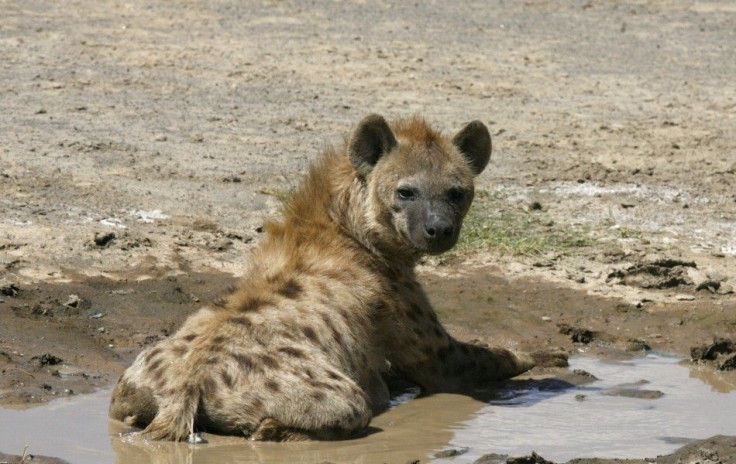Hyenas Attack, Kill Elderly Man After Dragging Him From Bed
In a horrific incident, an elderly man was dragged away by a pack of hyenas from his bed and mauled to death in central Zimbabwe.
The wild animals allegedly dragged 87-year-old Tendai Maseka almost 1,000 feet from his hut in the rural region of Chirumanzu. According to reports, villagers later found the body of Maseka, with the lower half of his torso missing. He was buried Thursday.
Tinashe Farawo, spokesman for the Zimbabwe Parks & Wildlife Management Authority, confirmed the attack on Twitter: "An elderly man who was killed by a pack of hyenas in Chirumanzu (87yrs) was staying alone. He was sleeping in a hut when the unfortunate incident happened. He was dragged for about 300m, with lower body missing. Drag marks and hyena tracks were visible."
Local authorities believe the same pack of hyenas could be responsible for a number of attacks on cattle in the region. Park rangers are allegedly hunting for the animals to “eliminate” them.
Farawo asked the people staying in the region to be alert, avoid moving going out at night and keep all doors and windows closed until the animals were captured.
"We are on the ground trying to track down the problem animals with a view to eliminating them. If we had enough resources we would have trans-located them from overpopulated areas to where there is less population," Farawo told CNN. "These things normally happen at this time of year because it's the drier months where normally food and water is scarce so the animals move long distances -- and into communities -- in search of food.
"This is the 60th human life lost this year alone to human wildlife conflict," said Farawo, adding that he believes more than six hyenas were responsible for Maseka's death.
Farawo said half of the attacks on humans involved elephants. He added hyenas were responsible for some of the attacks, while lions were involved in at least three. Last year, two young siblings were killed by hyenas while out picking fruits in the area, Farawo recalled.
He also told CNN the problem increased due to overpopulation of animals, including other factors such as destruction of their habitats by climate change along with the Covid-19 pandemic.
Farawo explained revenue was hit as the wildlife authorities rely mainly on tourism.
"But tourism in 2020 is just as good as dead, which has left us without resources to fund our conservation efforts," he said.






















